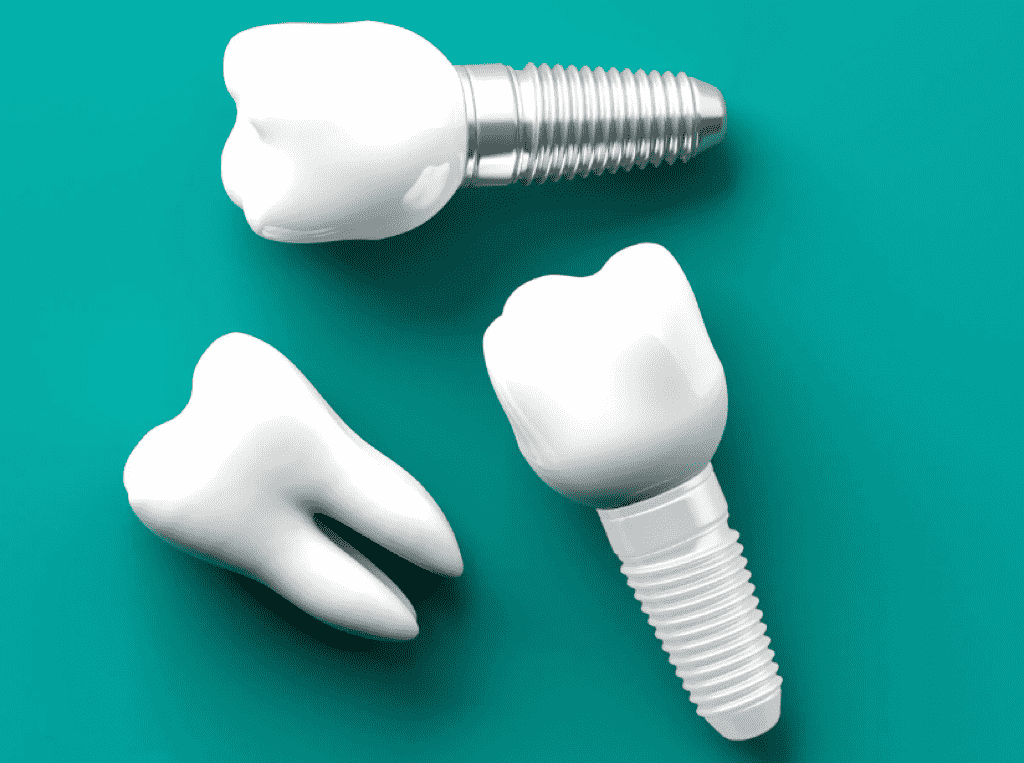Dental implants are one of the most popular tooth replacement options available today. However, with advancements in technology, there are now different types of dental implant materials to choose from. Two of the most commonly used materials for dental implants are titanium and zirconia. In this article, we will compare these two materials to help you make an informed decision about which one is right for you.

Titanium Implants
Titanium has been used in dental implant surgery for over four decades and is considered the gold standard for implant materials. This is because titanium is highly biocompatible, meaning it is well-tolerated by the human body and does not cause any adverse reactions. Additionally, titanium implants have a high success rate and can last for many years with proper care.
Another benefit of titanium implants is their strength and durability. They are able to withstand the forces of biting and chewing, making them a reliable option for tooth replacement. Additionally, titanium is a highly corrosion-resistant material, which means it is less likely to degrade over time.
One potential downside of titanium implants is their metallic appearance. While the implant itself is not visible once it is placed in the jawbone, the abutment and crown that are attached to it may be visible when you smile or speak. Some patients may find the metallic appearance unappealing, but this can be addressed with the use of tooth-colored materials for the crown and abutment.

Zirconia Implants
Zirconia is a relatively new material that has gained popularity in recent years as an alternative to titanium. Like titanium, zirconia is highly biocompatible and does not cause any adverse reactions in the body. Additionally, zirconia implants are highly resistant to corrosion, making them a durable option for tooth replacement.
One of the biggest benefits of zirconia implants is their aesthetics. Zirconia is a tooth-colored material, which means that the implant, abutment, and crown can be made to blend in seamlessly with your natural teeth. This makes zirconia implants a popular choice for patients who are concerned about the appearance of their smile.
However, zirconia implants are not as strong as titanium implants. They are more brittle and less able to withstand the forces of biting and chewing. This means that they may not be suitable for patients who have a history of bruxism (teeth grinding) or who require implants in areas of the mouth that are subjected to high chewing forces.
Another potential downside of zirconia implants is their long-term success rates. While zirconia implants have been shown to be successful in the short-term, there is limited data available on their long-term success rates. This is because they are a relatively new material and have not been in use as long as titanium implants.
Conclusion
| Titanium Implants | Zirconia Implants | |
| Material | Titanium | Zirconia |
| Biocompatibility | Highly biocompatible, well-tolerated by the body | Highly biocompatible, well-tolerated by the body |
| Strength and Durability | Strong and durable, able to withstand biting and chewing forces | Less strong and more brittle, may not be suitable for patients with bruxism or in high chewing force areas |
| Corrosion Resistance | Highly resistant to corrosion | Highly resistant to corrosion |
| Aesthetics | Metallic appearance, may be visible in some cases | Tooth-colored material, can blend in seamlessly with natural teeth |
| Long-term Success Rates | Long track record of success | Limited data available due to being a newer material |
| Cost | Generally less expensive than zirconia implants | Generally more expensive than titanium implants |
In conclusion, both titanium and zirconia implants have their own unique advantages and disadvantages. Titanium implants are a reliable and durable option with a long track record of success, while zirconia implants offer superior aesthetics and biocompatibility. Ultimately, the choice of implant material will depend on a variety of factors, including your individual needs, preferences, and budget.
Dental implants are a popular and effective solution for replacing missing teeth. When considering dental implant materials, it is important to weigh the pros and cons of each option and consult with a qualified dental professional. They can evaluate your oral health, discuss your goals and expectations, and recommend the best course of treatment for your individual needs. With the right dental implant material and proper care, you can enjoy a healthy, functional, and beautiful smile for many years to come.



